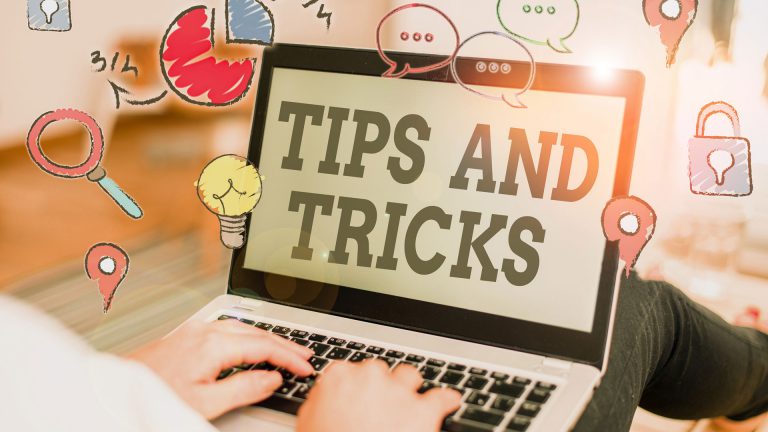It wasn’t all that long ago that employees could… well, get away with more. When everyone worked on the honor system, it was much easier to get away with slightly longer lunch breaks occasionally, stealthy job searches, and procrastinating on responding to a customer who was driving you insane. However, with new technology and data analytic techniques, you can get caught doing all manner of things that are less than productive or efficient. Say farewell to skimming social networks and taking an extra minute to drink a coffee or putting off that email until the last moment: weird spy technology is here to help prove you are one of the best… or slacking off behind everyone’s back. Say farewell to the old tropes of the office sitcoms.
The AI Knows What You Did in Last Hour
Software that can track keystrokes has been around for a little while now. The idea is to be able to keep track of employees on their computers to make sure they are working and being productive. The program tracks the keys that were pressed over a period of time and can then spit out a report. It’s hard for many employees to be able to tell if there is a tracking program on their computer and it’s an easy way for managers to see what their employees have been up to.
AI development has stepped up its game. Now software such as KnowYourDay can track how long you spend on applications and your internet activity, as well as keystrokes. The reports are then compared against targets.
Think that you can avoid this by working remotely? Nope! Smartphones and laptops can be tagged with location software in them (often as part of antivirus software such as Bitdefender or Find My Device) that can tell someone exactly where you were at any given point. So, if you were saying you were working from home, but your phone is showing at a bar, the boss is going to know. Obviously, this comes up a lot more often with technology that has been provided for you, but personal phones and computers have this functionality as well.
Is doing this legal? Well, it certainly occupies something of a grey zone. If the company is giving you devices to use for work, they have every right to go through the device regularly in order to ensure that it is being used properly, safely, and not for anything illegal. However, employers should tell their staff what data will be collected, how it will be used and how it will disclosed, and why. In other words, the company should have a clear policy mandating the use of electronic devices and data collection. On the other hand, many employees should expect some level of reasonable privacy; for example, non-unionized, provincially-regulated employers from provinces other than Alberta, British Columbia or Quebec have no restrictions or guidelines on monitoring employees, but the court may rule in favor of the employee in privacy cases.
Really though, the safest thing you can do is to only use work devices for work and leave the personal stuff for personal devices on personal time. After all, just about everyone has a smartphone of their own nowadays, so there’s no reason to be doing personal stuff on company devices.
Scanning Social Media
As a rule, we overshare on social media. We post a million photos of ourselves, our families, our travels, parties, meals, and so on. As such, social media provides a wealth of data about people that is ripe for the harvest. Everything we do on social media gives the right analytics software insight into what we are doing, what we plan to do, and what we want to do-perhaps even before we know it! Predictive platforms are getting better and better at taking this information, analyzing it, and then giving a fairly (or very) accurate report about what we are going to do. For example, stealthy job searches are much easier to detect now because we do things like update our education and job experience, join job boards and professional groups, and polish up our online presence. All these things are clear signs that someone is thinking about jumping ship, even if they haven’t thought much past a vague notion.
By now, you should know the dangers of oversharing on social media when it comes to work or searching for work. But it’s also worth noting the dangers of changing your information suddenly, joining groups that are geared for job searches or changing jobs and generally acting as though you’re on the hunt for a new job without actually telling anyone you’re doing that. Always imagine that your boss is poring over your social media and act appropriately because you never know: the boss may be doing just that!
New Careers in Tracking Technology
This is only the tip of the iceberg when it comes to tracking and analyzing employees. A Swedish office uses RFID chips embedded in employees to open locked doors and track the use of the photocopier. They are also used to reduce theft. Wearable fitness devices such as Fitbit watches are used as motivation tools to help employees stay fit, but they also have the problem of privacy, potential discrimination and loss of promotions if you aren’t deemed healthy enough to get it.
So that all sounds terrible (or potentially terrible), but it also opens the doors to some new careers utilizing these technologies. For example, Human Resources is branching off to include working in “people analytics”; the job of compiling, sorting and reporting on information gathered from texts, emails and social media usage on company devices. These analytics are then used in profiling to aid in decision making for things like promotions, transfers, or even being put on probation or not hired at all. And some experts predict that soon employers will be able to track the mood of employees and see how they feel about their job and what can be done to make them feel better (or figure out why so many are leaving). There will also be a spike in careers to protect all that sensitive data from hackers and thieves since so much of it is very personal and can open a company up to lawsuits for loss of privacy.
Tracking technology in the workplace might be considered an ethical problem and certainly there would be many employees who would be offended at the implication. But they are growing in popularity across industries for reasons ranging from security and anti-theft to productivity, efficiency and even to see how employees are doing in their mental and emotional health. While some people love it, others hate it and many are ambivalent, the important take-away is that the data can be gathered (and we often hand it up ourselves on a social media platter) and once it’s gathered, it can be used for all manner of things.
Does your company use tracking and data collection? How do you feel about it?


